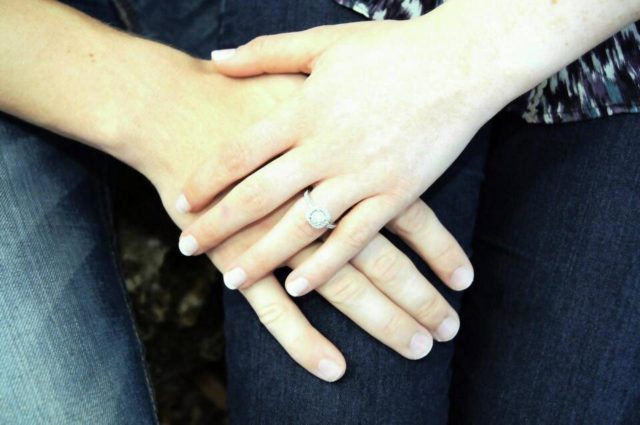The research reflects increasing female purchasing power and the continuing evolution of financial dynamics within modern relationships
ACCORDING to De Beers Group, more women are buying their own diamond engagement rings – and are spending more on them than men.
The latest diamond industry research published recently by De Beers Group reveals that the share of US women buying their own engagement ring doubled from seven percent to 14 per cent within a five-year period, and when women buy their own diamond engagement ring they spend on average 33% more than men –
$4 400 compared with $3 300
(R66 658 compared with R49 993).
The research reflects increasing female purchasing power and the continuing evolution of financial dynamics within modern relationships.
The research comes as De Beers Group published its latest Diamond Insight Report, which found that while society is changing rapidly, love remains a constant and diamonds are now acquired and used in a wider variety of ways to symbolise it.
According to the diamond giant, as the tradition of marriage evolves, diamonds continue to play a central role as the symbol of love.
“Although marriage rates in the US have decreased, and engagement periods are becoming longer (now five times longer than pre-1980), diamonds continue to be by far the leading choice for engagements and weddings, with eight out of 10 wedding rings and nearly nine out of 10 engagement rings in the US containing diamonds,” the report states.
“Meanwhile, the value of diamonds given as a gift of love before or after a wedding now exceeds the value of the engagement and wedding ring market.”
In addition, it seems that the fast-growing segment of unmarried cohabiting couples also express substantial demand for diamonds as symbols of their love. The leading motivation for diamond jewellery purchases in cohabiting couples is as a gift of love, and women in these relationships now represent 10% of the diamond jewellery market in the US.
Same sex couples see diamonds as centrally important to symbolise their relationships, with more than 70% of people in same-sex relationships viewing diamonds as important for celebrating life’s special events. Diamond jewellery is purchased both to celebrate each other and to celebrate the relationship, and the preference is for more modern and less traditional and gender-specific designs.
As the Millennial generation becomes a more significant force in the economy, they are now spending more than other couples on engagement rings. The average spend on engagement rings by Millennials in the US is now higher than the average spend on engagement rings in the US market as a whole.
Brands are also increasingly capturing Millennials’ attention.
Over 40% of the value of all engagement rings in the US comes from international luxury diamond jewellery brands and international designer brands, up from just under 30% in 2015.
Bruce Cleaver, CEO, De Beers Group, said “The notion of diamonds symbolising love goes back to the Middle Ages as people have long sought out the most precious things to celebrate their most precious emotions. Our latest Insight Report highlights that this holds just as true today, even as other aspects of love – such as traditions, relationship roles and relationship types – continue to evolve.
“However, while diamonds are still seen as the ultimate symbols of love, the diamond industry must focus on continuing to offer jewellery, brands and retail experiences that meet the modern consumer’s desire for individual products and experiences that reflect their own unique love story.
“And it will be increasingly important to share information about the hugely positive impact diamonds have for producing countries and communities around the world, as this reinforces their value as symbols of love that their owners can be proud to wear.”








